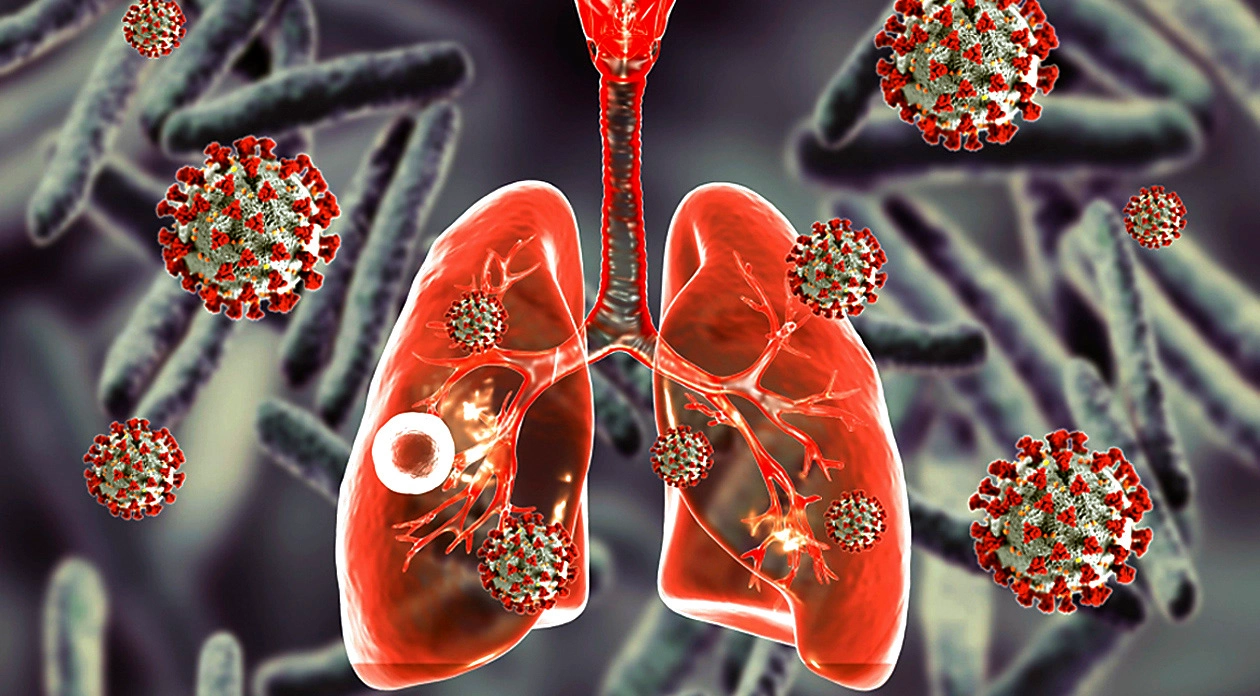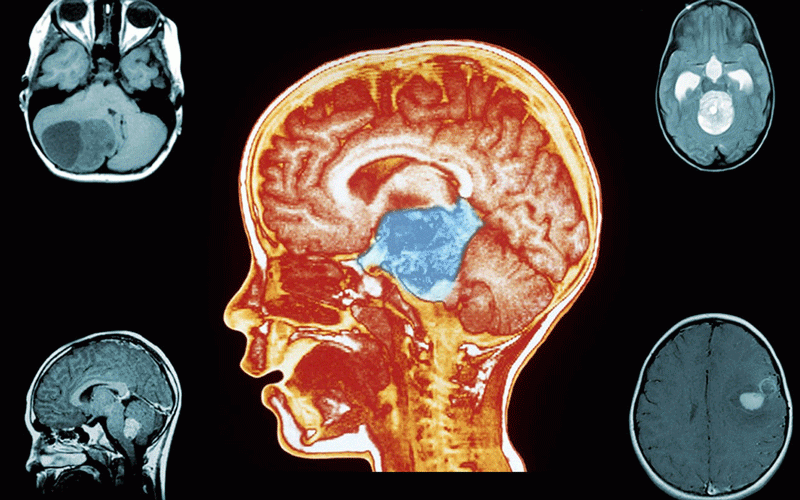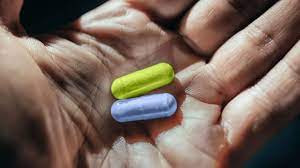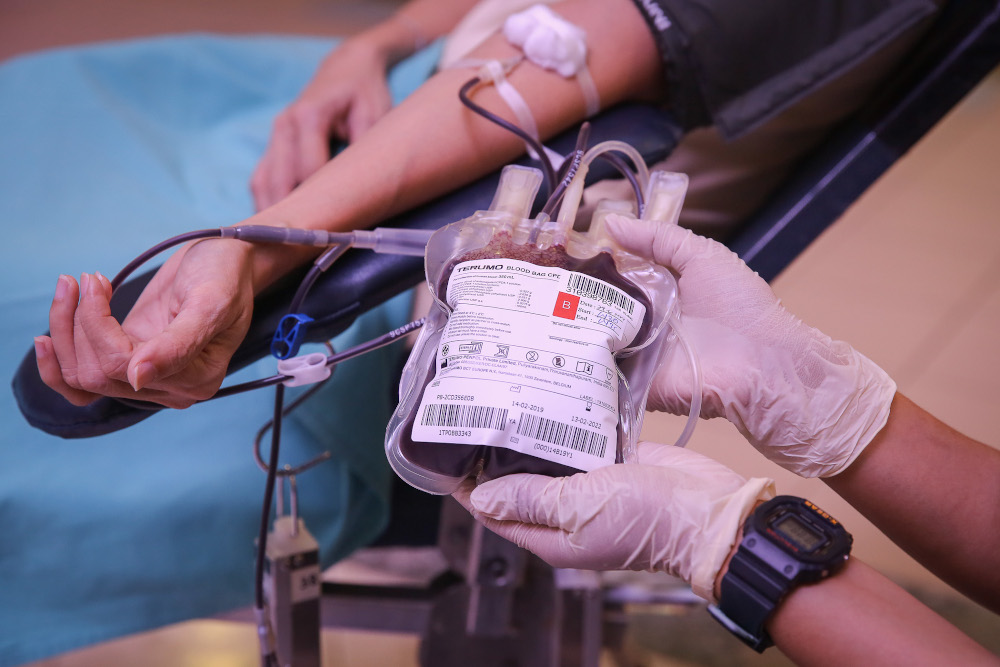
COVID-19 has had a severe impact on efforts to put an end to tuberculosis (TB), which is one of the world’s deadliest infectious killers, although it is both preventable and curable.
Deaths from TB increased in 2020 for the first time in a decade, according to the World Health Organisation.
Tuberculosis is a contagious infection caused by bacteria that mainly affects the lungs.
However, it can affect any other organ including your bones, spine, kidneys and even the brain.
World TB Day is commemorated every year on March 24 to increase public awareness about TB and efforts to eliminate the disease.
This year’s World TB Day theme is ‘Invest to End TB. Save Lives’.
The theme is centred on the need for more resources to be allocated to the fight against TB, which has been hampered by the worldwide focus on Covid-19.
Some of the targets set at the 2018 United Nations High-Level Meeting (UNHLM) on TB were due to be met by the end of this year.One of them was the global investment of US$13 billion in the fight against TB by 2022. Only half of this amount has been made available so far.
- Chamisa under fire over US$120K donation
- Mavhunga puts DeMbare into Chibuku quarterfinals
- Pension funds bet on Cabora Bassa oilfields
- Councils defy govt fire tender directive
Keep Reading
Causes of TB Tuberculosis is caused by bacteria that spread from person to person through microscopic droplets released into the air. This can happen when someone with the untreated active form of tuberculosis coughs, speaks, sneezes, spits, laughs or sings.
Although tuberculosis is contagious, it is not easy to contract. You are more likely to have tuberculosis passed onto you by someone you live with or work with than by a stranger you meet on a bus ride.
Most people with active TB who have had appropriate drug treatment for at least two weeks are no longer contagious.
Types of TB There are two types of tuberculosis infection namely active and latent.In active tuberculosis, a person carrying the bacteria has active symptoms and can transmit the infection to other people.
In latent tuberculosis, the person carries the bacteria but does not exhibit any symptoms at all. This is because immunity fights the infection and is able to suppress it to an extent.
People suffering from latent tuberculosis cannot transmit the illness to others. However, at some point in their life, the bacteria can become reactivated and the infection can become active tuberculosis.
Another way of classifying tuberculosis is based on the organs affected. For example, if the bacteria infects the lungs, it results in a condition called pulmonary tuberculosis. If the bacteria infects the bladder, it can cause bladder tuberculosis.
Similarly, if it infects the spine, it can lead to tuberculosis of the spine which is also called Potts disease or Potts’s spine. Tuberculosis can also affect the skin, brain and even your heart.
Some people may be diagnosed with miliary TB.
This is a rare form of the active disease that occurs when TB bacteria find their way into the bloodstream.
Symptoms Common symptoms of active TB include coughing for three or more weeks, coughing up blood or mucus, chest pain or pain with breathing or coughing, unintentional weight loss, fatigue, fever, night sweats, chills and loss of appetite.
If tuberculosis occurs outside the lungs, the symptoms may be specific to the part of the body affected.Tuberculosis in the brain can lead to meningitis.
TB of the spine might cause back pain. TB in the kidneys might cause blood in your urine.
Treatment Active TB is treated by taking several drugs.The standard length of time for a course of TB antibiotics is usually about six months.
However, this can be changed by your doctor depending on your condition.
A monitored approach can be taken in some cases, with TB patients being asked to take their medication under the supervision of a doctor or other healthcare professional.
This supervised programme is called Directly Observed Treatment (DOTs). Its aim is to prevent abandonment of treatment or erratic treatment.
Even if the symptoms of tuberculosis begin to disappear after you have begun taking the drugs, it is important to continue taking them for the entire course to ensure that all TB bacteria are killed.
Stopping medication midway may result in failure of the treatment, with a continued risk of transmission or acquired resistance of the bacteria to the medication, which can lead to multi drug resistant TB (MDR-TB).
Prevention Keep your immune system functioning properly by adopting healthy eating habits, exercising regularly and getting sufficient sleep.
A healthy immune system often successfully fights off the bacteria.
Avoid close contact with anyone you know or suspect has TB. If you are frequently in close contact with people who are unwell wearing a mask may offer some protection.
Going for a check-up is important if you suspect that you may be suffering from TB, as early diagnosis can prevent complications.
If someone you know has contracted TB, encourage him or her to adhere faithfully to the treatment. If you have been diagnosed with active TB, be sure to complete the full course of your TB medication.
Avoid passing the TB onto others by staying at home especially during the first two weeks of treatment and avoiding contact with others, as far as you can.
Cover your mouth with a tissue when you cough or sneeze and wear a face mask when around people during the first few weeks of treatment as this is when it will be highly contagious.
- The information in this article is provided as a public service by the Cimas iGo Wellness programme, which is designed to promote good health. It is provided for general information only and should not be construed as medical advice. Readers should consult their doctor or clinic on any matter related to their health or the treatment of any health problem. — [email protected] or WhatsApp 0772 161 829 or phone 024-2773 0663











